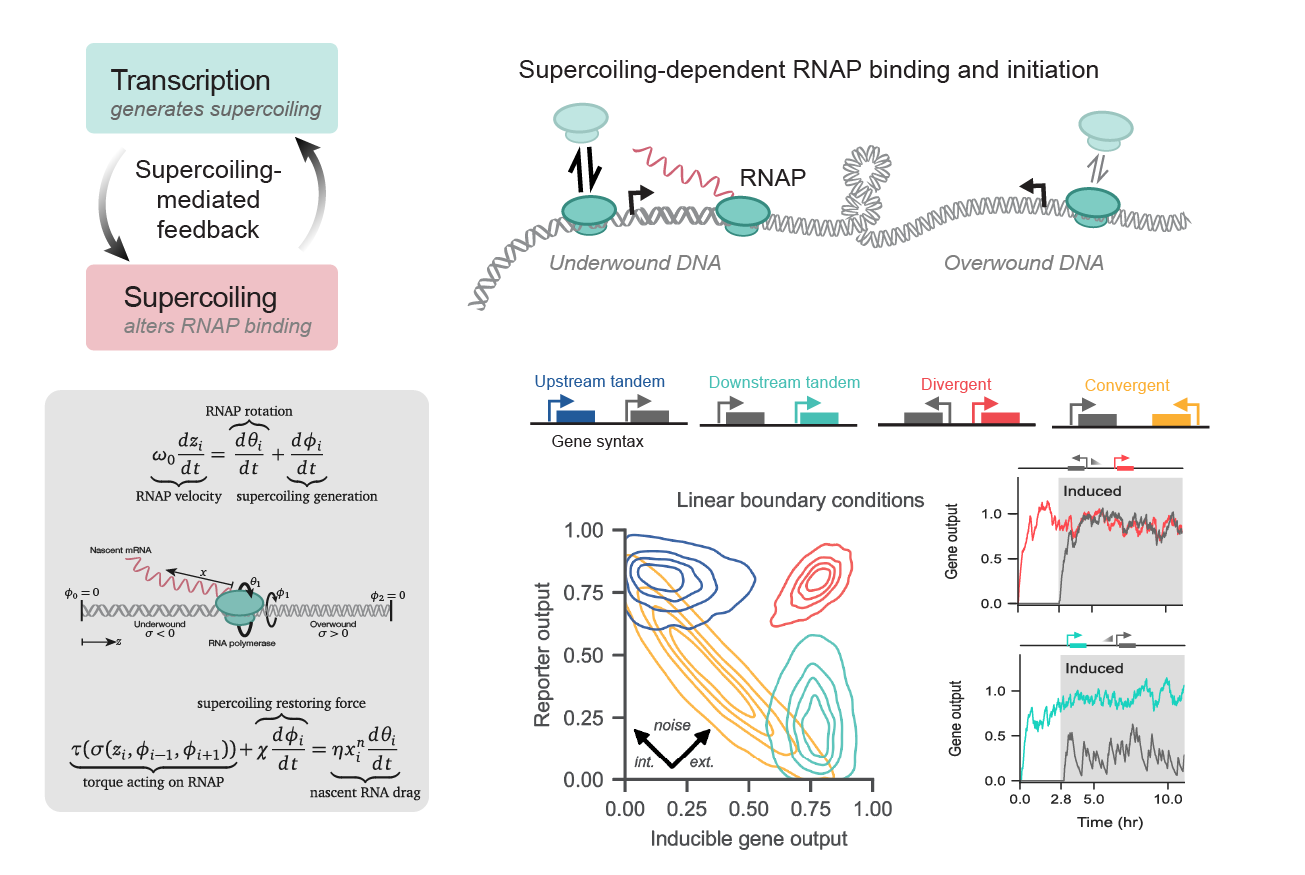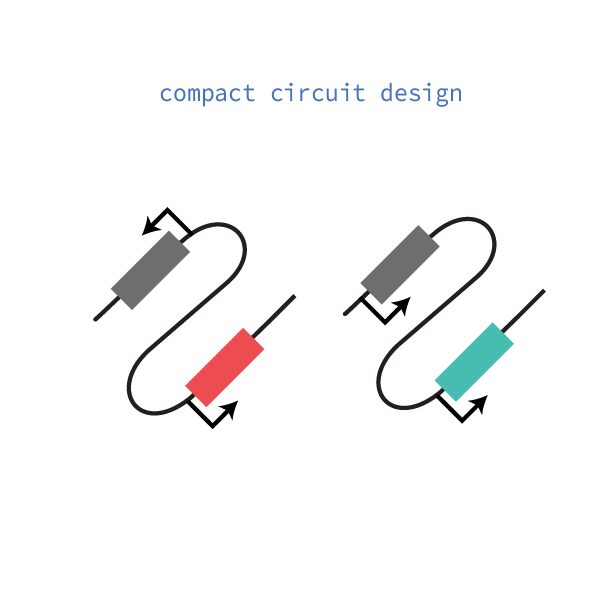Highly compact, genetically-encoded gene circuits


Objective: To support rapid and efficient cell engineering through the development of compact and modular molecular tools for building genetic control systems and the requisite computational models and theory to guide their design.
Why? Delivery of large genetic cargoes limits the efficiency of cellular engineering. Thus, our work is focused on the design of highly-compact genetic tools with a minimal genomic footprint.
Challenges. Co-localization of multiple transcriptional units provides a simple method of compact design. However, co-localization introduces the potential for physical coupling between transcriptional units. To capture this coupling, we developed a framework for integrating traditional biochemical gene regulation with the biophysical effects of DNA supercoiling into a unified model.
Vision. With this framework, we are designing genetic controllers and dynamic circuits including toggle switches, oscillators, and pulse-generators for optimal performance including noise-rejection.
Related papers
STRAIGHT-IN Dual: a platform for dual, single-copy integrations of DNA payloads and gene circuits into human induced pluripotent stem cells. bioRxiv (2024)
Programmable promoter editing for precise control of transgene expression. bioRxiv (2024)
Model-guided design of microRNA-based gene circuits supports precise dosage of transgenic cargoes into diverse primary cells. bioRxiv (2024)
Supercoiling-mediated feedback rapidly couples and tunes transcription. Cell Reports. (2022)
Dynamically reshaping signaling networks to program cell fate via genetic controllers. Science (2013)
Reviews and perspectives
Understanding and Engineering Chromatin as a Dynamical System across Length and Timescales. Cell Systems. (2020)
Engineering cellular symphonies out of transcriptional noise. NRMCB. (2021)
The sound of silence: Transgene silencing in mammalian cell engineering. Cell Systems. (2022)
Synthetic gene circuits as tools for drug discovery. Trends in Biotechnology (2022)
RNA-based controllers for engineering gene and cell therapies. COIBT (2024)

